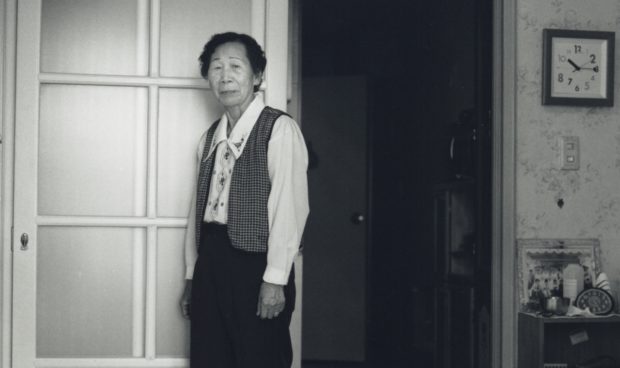Documentary film ‘Comfort’ tells untold story about former ‘comfort women’

The late Kim Soon-ak featured in the documentary film “Comfort” directed by Park Moon-chil (Daegu Gyeongbuk Independent Film Association via The Korea Herald/Asia News Network)
SEOUL — The late Kim Soon-ak had been testifying about her experience living as a wartime sex slave of the Japanese military, and also her life living as a housekeeper after Korea‘s liberation before she died in 2010.
However, there were parts of her life that she had been reluctant to speak out in public about for quite some time.
After the Japanese colonial period ended, she lived in prostitutes’ quarters and did sex work at a US military camp town to survive.
Director Park Moon-chil’s documentary film “Comfort” reveals this little-known part of her story, and why she had to make those choices through the voices of women living today.
“Many people know former comfort women as victims of wartime or protesters who share their experience as sex slaves. I thought it would be interesting to show a story about what their lives were like in between those two periods,” Park said during a press conference held at CGV Yongsan in Seoul on Wednesday.
The documentary project started with funds from the Daegu Citizen’s Forum for Halmuni, an organization that operates Heeum, a museum about wartime sex slaves of the Japanese military in Daegu.
“They told me that they want to create a documentary about comfort women. Their initial proposal was something different though,” Park said. “I thought that there are already so many similar great films about comfort women, and told them I wanted to do something different.”
Park said that was when he got access to the organization‘s data, and learned in detail about the late Kim.
“I felt especially attached to her,” Park said. “She seemed fun and charismatic. I was attracted to her character.”
The director also thought that it was important to spread her story.
“I think she has fulfilled her role as a victim by leaving an important historical record via oral speech,” Park said. “She left an important record, but it is not being spread. So I put a lot of thought into how to make the story relevant to people living today.”
He said the solution that he found was to make women, who have been speaking out about their experiences as victims of sexual misconduct and taking part in the #MeToo movement, part of his film.
“I wanted to see what they learned from the comfort women’s experiences. I thought it could bring these historical records back to life,” the director said.
The director also added that it was difficult searching for performers who could read Kim’s testimony in his documentary film.
“I wanted to find women who had a local accent similar to Kim Soon-ak’s. It would have been easier to find people who took part in the #Me Too movement in Seoul, but (to get the accent right) I searched for #MeToo movement participants in Daegu,” he said.
Also, because their full faces appear in the movie, it was not easy to find participants, Park said.
Park’s film features the late Kim’s artistic side as well, by showing how she created artworks with dried flowers and plants.
“People tend to think that films about comfort women are deep and dark, but this film is warm and relatable,” Park said at the end of the press conference.
The documentary film will hit South Korean theaters on Feb. 23.
RELATED STORIES
Remembering the Filipino comfort women
Descendants help retell ordeal of comfort women
Lola Lita, ‘comfort woman,’ dies without getting justice
Japan has sincerely addressed the issue of comfort women’
Controversial Harvard professor claims no contemporary evidence on ‘comfort women’